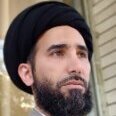Search the Community
Showing results for tags 'breaking'.
-
Question: What is the Islamic ruling about someone who does not fast intentionally or breaks his fast deliberately? Answer: He should repent and seek divine forgiveness and it is necessary for him to observe the Qadha of the fasts which he has left out. As for kaffara (penalty), the details are as follows: If a person breaks his fast by eating or drinking or sexual intercourse without knowing that he must fast or was certain that fasting is not obligatory on him or broke his fast due to inculpable ignorance (ignorance out of innocence), it is not obligatory to give kaffarah (penalty). In case, however, he was guilty of not learning the rules, then kaffara is obligatory on him, as an obligatory precaution. In case he broke his fast and was fully conscious of his duty to observe fast or that he was aware that what he is doing invalidates the fast, kaffara becomes obligatory. The kaffara is to feed sixty poor even if he has broken his fast with something haram. If he knew that it was necessary to observe Qadha in the same year but he did not observe the Qadha till next Ramadhan, he should give 750 grams of food stuffs (such as flour, bread, noodles or date etc.) as kaffara for each day. If a person cannot observe the Qadha due to illness or other problems that hinder him from observing the Qadha, he should leave a Will asking his relatives to observe the Qadha on his behalf.
-
Question: What is the Islamic law about someone who breaks his fast thinking it is not obligatory on him to fast? Answer: If he was certain that fasting is not obligatory on him, there is no kaffarah on him nor is any fidya payable. However, Qadha is obligatory on him but if he was not certain about fasting not being obligatory, he should give both Qadha and kaffarah. The kaffarah is to feed sixty poor Shia Muslims by one mudd (750 grams) of foodstuffs to each 60 different needy Shia Muslims. Qadha should be performed in the same year and if it is delayed until the next Ramadhan, he should give the Qadha and kaffarah of 750 grams of food stuffs for each day to the poor. If the Qadha is delayed again in the following years, the kaffarah is not repeated.
-
Question: I become extremely thirsty while fasting. Can that be an excuse for breaking my fast? Answer: If a person who is observing fast becomes thirsty and it is feared on his part that fasting might be harmful to him or it is extremely difficult for him that it is not bearable normally, it is permissible for him to drink at the time of extreme thirst to the extent of necessity only in which case his fast becomes void and he should not eat or drink more than that out of respect for the month of Ramadhan and should continue to restrain himself for the rest of the day, as an obligatory precaution. He should observe the qadha of that day after the month of Ramadhan. If he is not fasting in the month Ramadhan and he has enough time to perform the Qadha of his missed fast, he can break his fast.

